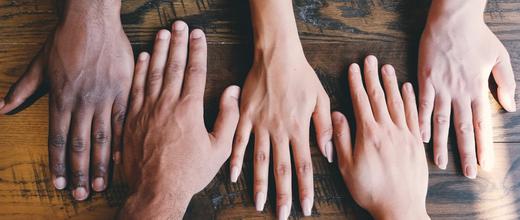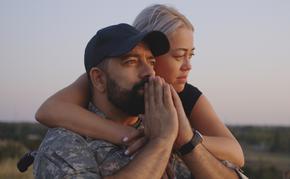The views expressed in our content reflect individual perspectives and do not represent the authoritative views of the Baha'i Faith.
It might sound strange, an Iranian immigrant heavily involved in a school for at-risk high school kids in Harlem – but I loved it.
I brought to Harlem Prep the fruits of the excellent education I had received in Iran, which had been traditional and demanding, along with openness to the spirit of the times with its paradigm-breaking ideas and approaches. When it came to education, I was a pragmatist, willing to wholeheartedly support the philosophy of the Prep if it could advance the lives of young people.
My views were strongly influenced by the Baha’i teachings, which emphasize the innate goodness in all human beings, and their potential which could best be realized through education:
Man is the supreme Talisman. Lack of a proper education hath, however, deprived him of that which he doth inherently possess. Through a word proceeding out of the mouth of God he was called into being; by one word more he was guided to recognize the Source of his education; by yet another word his station and destiny were safeguarded. The Great Being saith: Regard man as a mine rich in gems of inestimable value. Education can, alone, cause it to reveal its treasures, and enable mankind to benefit therefrom. – Baha’u’llah, Tablets of Baha’u’llah, p. 162.
Distinguished Baha’i educators inspired me. Dr. Stanwood Cobb had founded the Chevy Chase Country Day School in 1919 and served as president of the Progressive Education Association, which emphasized experiential learning, critical thinking, collaboration, social responsibility, and a more personalized form of education. Dr. Daniel Jordan developed a wholly new educational model, ANISA, in the 1960s and ’70s, which took a holistic approach to education that sought to transmit knowledge in a cohesive, forward-looking framework, grounded in reality and experience.
I started out at the Prep as a 25-year-old math teacher, but was soon appointed assistant headmaster with the responsibility of hiring faculty, among others. My work at the Prep was to keep the place running by applying for funding, managing the facilities, organizing the visits of guests who wished to see this experimental school first hand, and putting out the many fires that came up during the regular day of a start-up school in a rough area. Once, a young man with a gun came into the school, angry at a student who owed him $20. I approached him in a friendly manner, and he responded with, “You’re no director!” I gave him the $20 and he left. Later, he came back to the Prep as a student!
I worked well with the Carpenters, but I preferred to stay in the background, especially given the racial sensitivities of those times. The school was blessed with many talented individuals who were dedicated to its mission and sacrificed greatly to ensure the success of the students.
Among my wonderful African-American Baha’i colleagues was Viola Wood, the daughter of a Baha’i couple from Milwaukee. Her father had been a successful dentist, which was no small feat for a black man in a white-dominated society. He continued to serve an underserved population through his practice. We thought of Viola as our angel because of her selfless service.
Al Burley had grown up in Harlem to be an amateur boxer and a friend of Malcolm X. On the streets of his neighborhood in Harlem he had previously been known as ‘Stick-Up Burley’, but his life was transformed by becoming a Baha’i. He developed a successful career as a photographer and captured the portraits of many of Harlem’s elites.
Artis Williams grew up in the oppressive racial atmosphere of the red clay country in Georgia. She migrated north to New York City where she became a Baha’i after experiencing interracial fellowship in the home of a Baha’i from a Jewish background.
Wilma Ellis was from a family of distinguished American Baha’is who made important contributions to the local and national communities. She went on to head the Baha’i International Community offices at the United Nations.
Frances Merle Des Isles grew up in French Algeria, the son of a high official. A deeply mystical man, he had spent some of his early years living as a hermit. At his mosque, his teacher had told him that the day of the fulfilment of Islam had come, that Francis must go on a search, and that if he found the Promised One of the ages, he must write back to him. When Frances first heard of the Baha’i Faith, possibly in Europe, he thought it was his duty to kill Baha’is because of what he saw as their heretical teachings, but after a powerful conversion experience, he instead became a devout Baha’i.
I learned firsthand, as a result of these remarkable collaborations and the deep, lifelong friendships that resulted, about the power of the Baha’i teachings to unite humanity across racial divides:
Casting away once and for all the fallacious doctrine of racial superiority, with all its attendant evils, confusion, and miseries, and welcoming and encouraging the intermixture of races, and tearing down the barriers that now divide them, [the Baha’is] should each endeavor, day and night, to fulfill their particular responsibilities in the common task which so urgently faces them. – Shoghi Effendi, The Advent of Divine Justice, pp. 39-40.
This series of essays is adapted from Foreigner, the new book by Hussein Ahdieh and Hillary Chapman about Ahdieh’s life as a Baha’i immigrant from Iran to America. The book is available here.

















Comments
Sign in or create an account
Continue with Facebookor